It doesn't need to be difficult to make your house a sustainable and healthy retreat. You can significantly improve your well-being by incorporating some conscious decisions to your everyday routine. Here are some simple ways to transform your house into a healthier, greener place: use HEPA air filters, filter your water with Alkanatur, and try to avoid phthalates and parabens (this one is tricky!).
First, Water
Purchasing a water filtration system, like Alkanatur, offers you the advantages of alkaline water in addition to guaranteeing that your drinking water is free of contaminants. Alkaline water is well known for its ability to improve general health and balance acidity in the body. You can ensure that staying hydrated is more environmentally friendly by lowering your dependency on single-use plastic bottles, which also helps to reduce plastic waste. Also, by bathing in filtered water, you boost the health of your skin, hair, and nails - all while avoiding toxic chlorine exposure.
Air Quality
For a better home atmosphere, indoor air quality must be addressed. By effectively capturing dust, pollen, and pet dander, HEPA air filters lower the risk of respiratory problems. The efficiency of these filters is increased with regular maintenance and replacement, giving you and your family clean, filtered air to breathe. In addition, be sure to open windows and regularly air out your home.
Cleaner Cleaning
Replace chemical-laden cleaning products and detergents with natural, environmentally acceptable substitutes. To maintain a clean home without sacrificing your health, try utilizing baking soda, vinegar, or plant-based cleaning supplies. This tiny adjustment reduces the negative effects of harsh chemicals on the environment while also encouraging a healthier living environment. Your hands will also thank you!
Phthalate & Paraben Free
From candles, to beauty products, air fresheners, to laundry detergent, and even toys, scented products can often contribute to chemical overload. Pregnant women and children are often most susceptible to the detrimental effects of these known endocrine disruptors. These products are proven to be harmful to human and animal health. These chemicals, which are used to improve the dispersion of fragrances, and to make plastics more durable, are linked to a number of harmful health impacts. Studies indicate that repeated exposure is linked to hormonal regulatory disturbances that may affect reproductive and developmental processes. Moreover, inhaling them contributes to indoor air pollution and exacerbated respiratory issues. Choosing unscented products as much as possible will significantly improve your exposure.
Whole Foods
Keeping a well-stocked refrigerator with whole, minimally processed foods promotes a healthy diet and helps cut down on packaging waste from pre-packaged and processed goods. To reduce packaging even more, think about purchasing in bulk. For a lower carbon footprint, select seasonal, locally grown (preferably pesticide-free) vegetables and fruits.
Ever Green
Adding houseplants to your home not only improves its aesthetic appeal, but also improves the quality of the air by absorbing contaminants. Pothos, spider plants, and snake plants are a few low-maintenance examples of air-purifying plants. Seeing plants can also help relaxation, and assuage anxiety. Watering your plants with filtered, mineralized water will also help improve their growth and appearance, bringing things full-circle!
Making deliberate decisions to prioritize your wellness is the first step toward a healthier home. You're doing a lot more than simply redecorating when you adopt a conscious approach; you're actively contributing to the shift toward a more sustainable and healthful future for your family, and for the planet.
Alkanatur Alkaline Water Filter Pitcher with Magnesium & Antioxidants – Alkanatur North America
Search: 41 results found for "shower filters" – Alkanatur North America



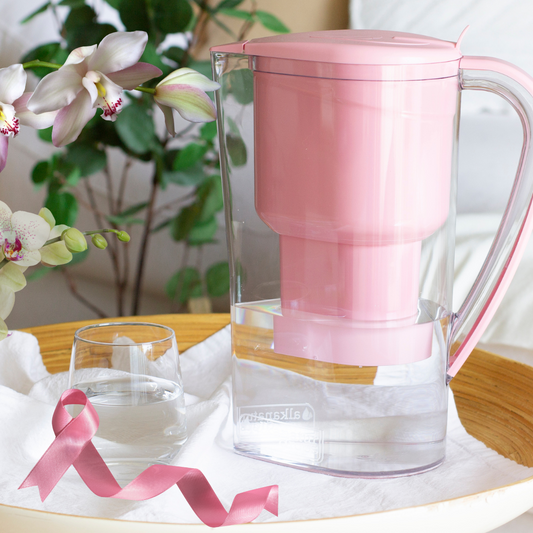

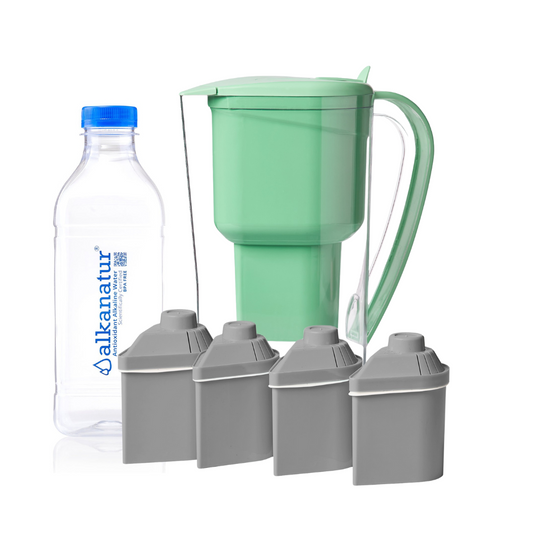

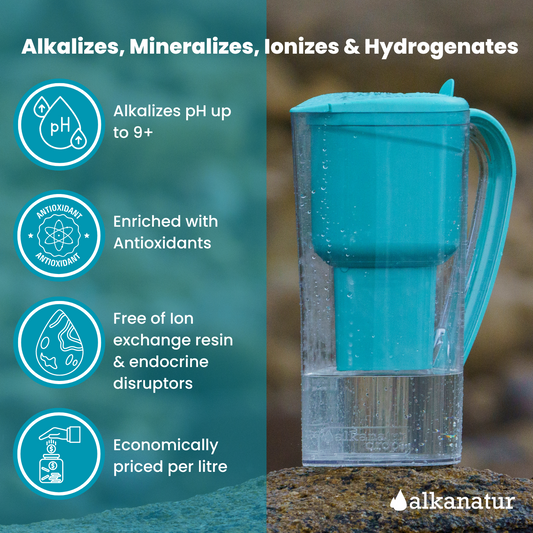
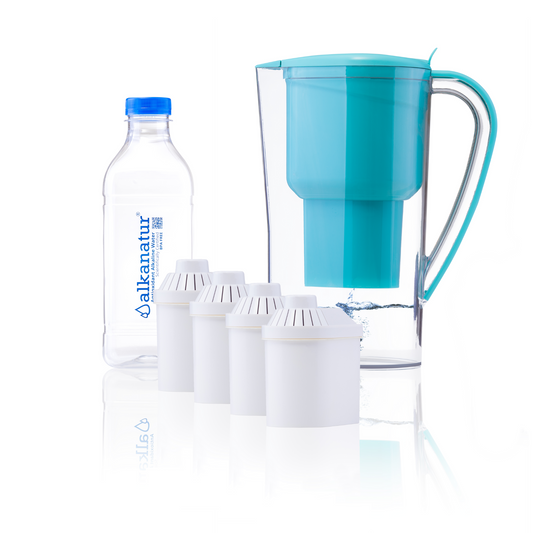
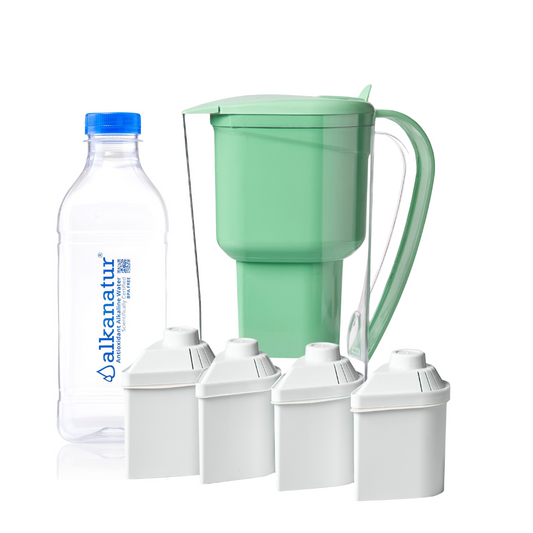
1 comment
Thanks for sharing all these eco-friendly ideas! However, it looks like there are no tips for conserving water. The first thing every homeowner should do to reduce water consumption is to check for plumbing leaks.
Unfortunately, some leaks may be difficult to detect. I want to share a brief article that shares a few things to look out for: https://www.gilmanheatingandcooling.com/resources/blog/how-to-detect-water-leaks-and-what-to-do-about-them.